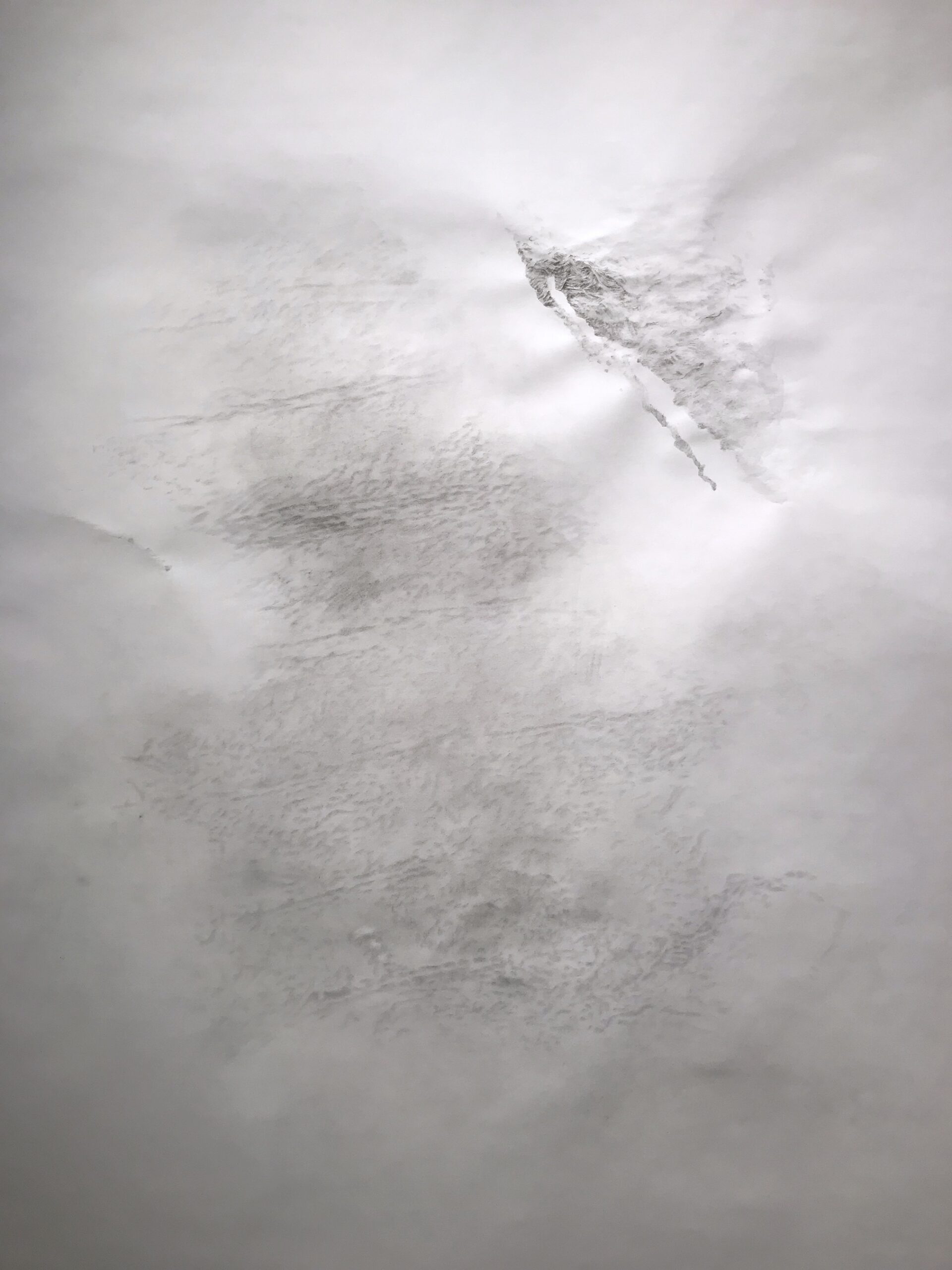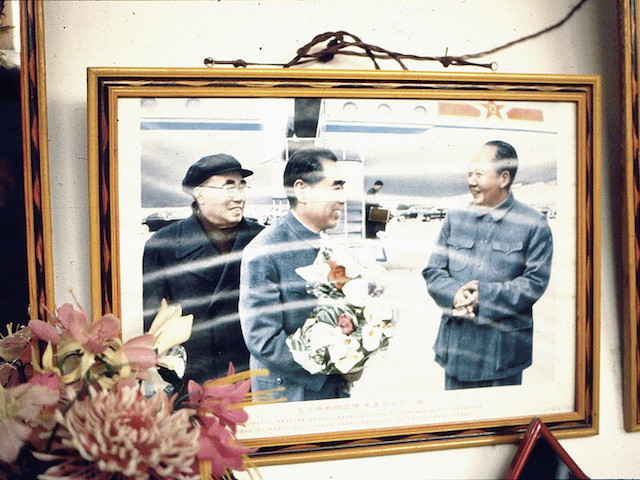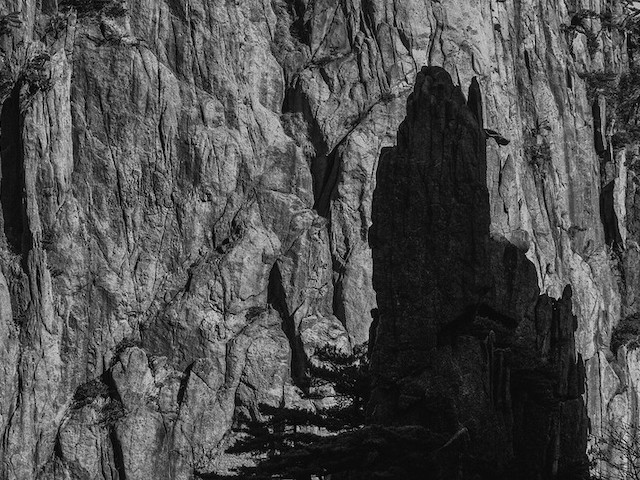I want — Evanescence — slowly. After great pain.

“It was a year of brilliant water”
—Thomas de Quincey
I
Students of mist
climbing the stairs like dust
washing history off the shelves
will never know this house never
that professors here in glass sneakers
used window squares for crosswords
moving the weather from sky to sky
under their arms new editions of water
while mirrors left lying on coffee tables
tore the glare from the windows
and glued vanishing rainbows
to the walls the ceilings
will never know the sun’s quick reprints
2
It was a year of brilliant water
in Pennsylvania that final summer
seven years ago, the sun’s quick reprints
in my attaché case: those students
of mist have drenched me with dew, I’m driving
away from that widow’s house, my eyes open
to a dream of drowning. But even
when I pass—in Ohio—the one exit
to Calcutta, I don’t know I’ve begun
mapping America, the city limits
of Evanescence now everywhere. It
was a year of brilliant water, Phil,
such a cadence of dead seas at each turn:
so much refused to breathe in those painted
reflections, trapped there in ripples of hills:
a woman climbed the steps to Acoma,
vanished into the sky. In the ghost towns
of Arizona, there were charcoal tribes
with desert voices, among their faces
always the last speaker of a language.
And there was always thirst: a train taking me
from Bisbee, that copper landscape with bones,
into a twilight with no water. Phil,
I never told you where I’d been these years,
swearing fidelity to anyone.
Now there’s only regret: I didn’t send you
my routes of Evanescence. You never wrote.
3
When on Route 80 in Ohio
I came across an exit
to Calcutta
The temptation to write a poem
led me past the exit
so I could say
India always exists
off the turnpikes
of America
so I could say
I did take the exit
and crossed Howrah
and even mention the Ganges
as it continued its sobbing
under the bridge
so when I paid my toll
I saw trains rush by
one after one
on their roofs old passengers
each ready to surrender
his bones for tickets
so that I heard
the sun’s percussion
on tamarind leaves
heard the empty cans of children
filling only with the shadows
of leaves
that behind the unloading trucks
were the voices of vendors
bargaining over women
so when the trees
let down their tresses
the monsoon oiled and braided them
and when the wind again parted them
this was the temptation
to end the poem this way:
The warm rains have left
many dead on the pavements
The signs to Route 80
all have disappeared
And now the road is a river
polished silver by cars
The cars are urns
carrying ashes to the sea
4
Someone wants me to live A language will die with me
(once
spoken by proud tribesmen
in the canyons east
of the Catalinas or much farther north
in the Superstition Mountains) It will die with me
(Someone wants me to live)
It has the richest consonant exact
for any cluster of sorrows
That haunt the survivors of Dispersal that country
which has no map
but it has histories most
of them forgotten
scraps of folklore (once
in mountains there were silver cities
with flags on every rooftop
on each flag a prayer read
by the wind a passer-by forgiven all
when the wind became his shirt)
Someone wants me to live
so he can learn
those prayers
that language he is asking me
questions
He wants me to live
and as I speak he is freezing
my words he will melt them
years later
to listen and listen
to the water of my voice
when he is the last
speaker of his language
5
From the Faraway Nearby —
of Georgia O’Keeffe — these words —
Black Iris — Dark Iris — Abstraction, Blue —
her hands — around — a skull —
“The plains — the wonderful —
great big sky — makes me —
want to breathe — so deep —
that I’ll break — ”
From her Train — at Night — in the Desert —
I its only — passenger —
I see — as they pass by — her red hills —
black petals — landscapes with skulls —
“There is — so much — of it —
I want to get outside — of it all —
I would — if I could —
even if it killed me — ”
6
“I have no house, only a shadow”
— Malcolm Lowry
In Pennsylvania seven years ago
it was a year of brilliant water,
a resonance of oceans at each turn.
It’s again that summer, Phil, and the end
of that summer again: you are driving
toward the Atlantic, drowning in my
brilliant dream of water. I too am leaving,
the sun’s reprints mine. There are red hills
at the end of my drive through three thousands
miles of Abstraction, Blue — the Blue that will
always be here after all destruction
is finished. “Phil was afraid of being
forgotten.” But it’s again a year of water,
and in a house always brilliant with lights
I’m saying to a stranger what I should
have said to you: “I have no house only
a shadow but whenever you are in need
of a shadow my shadow is yours.”
7
We must always have a place
to store the darkness
but in your house all the lights are on
even during the day
The fluorescents you say
are like detergent
They whitewash the walls and the ceilings
Your vacuum sucks in half-shadows
from your carpets
and as you climb the stairs
the wax polishes the sound of your footsteps
What can I be but a stranger in your house?
My house is damp with decades in which
the sun was dark
I keep all my lights off
During the day I shut the blinds
No
Don’t even bring a candle when you come
8
You
sometimes suddenly
the son I’ll never have
Mediterranean boy
Icarus of the night
You drive your car
its wheel dying
on the platinum tar of tides
a highway on the sea
paved by the rising moon
Sirens whispering
on their lips the sinking
breaths of salt
whispering from Istanbul to Tunis
whispering their silver fractures
at the booths where your hand
rich with planets for coins
pays toll
your windows rolled down
the brine pouring its green change
into your car
9
“I want to eat Evanescence slowly.”
— Emily Dickinson
The way she had — in her rushes — of resonance —
I too — so want to eat — Evanescence — slowly —
in the near — faraways — of the heart. Like O‘Keeffe
also — in her Faraway Nearby — that painting,
this ghost-station — from where her Train — in the Desert —
at Night — will depart — its passenger — only I —
banished to the soul — of the desert — from its heart.
After great pain — a formal feeling does come — I —
the society — of that sheer soul. The soul selects
its own society: a formal feeling will come:
I want — Evanescence — slowly. After great pain.
So I refuse to be the only passenger:
I’ve bought tickets for us to Evanescence, Phil,
and you will be with me as we pass the ghost towns —
What views! Rock ruins of post offices. Brilliant,
Telegraph — we’ll pass them. There’ll be news from Carthage —
and then Tierra Blanca — the Train holding just us —
Immortality — and Fog — that blond conductor
who will ask — at Chance Village — for our tickets.
You come — punctual as a star! — to wave to the rich,
platforms across us stunned by their luggage. No god
would dare send them away empty, as usual
they’re inheriting everything, even hope. See,
there’s no end at the end, so you musn’t die, no,
not now, for our train has begun to move, wedding
the sky with a ring of smoke. The rich don’t see us,
though we throw roses at them, white and calico,
frail aristocrats of Time. It’s far behind now,
mere gold dust, the station of Faraway Nearby,
the rich invisible. And we are millionaires,
passing Pink and Green Mountains, painted just for us,
and other landscapes we own, Black Cross with Red Sky.
Black Mesa, Ghost Ranch Cliffs. Vast Nights of Lightning. Stars.
But your voice is choked, the whisper it was the last
time we spoke. “Let his voice not change!” I’d almost prayed.
You fall silent as I give our tickets to Fog.
When he leaves, we see Light Coming on the Plains,
the last painting we own. As it too vanishes,
you say, “You’re wrong. It isn’t that my voice has changed.
It’s just that you’ve never before heard it in pain.”
10
Shahid, you never
found Evanescence.
And how could
you have? You didn’t throw
away addresses from
which streets
departed, erasing
their names. Some
of these streets,
lost at junctions, were
run over by trains.
At stations
where you waited, history
was too late:
those trains
rushed by and disappeared
into mirrors
in which
massacres were hushed.
No reporters
were allowed
in. You waited to hear
the glass break,
but no train
came back. And then
on those mirrors
curtains
were drawn. You didn’t
throw away addresses,
and some
of these streets
were picked up
at exits
that took them
to cities miles
under the ocean
from where postcards came
with Africa washed
off them.
You didn’t throw away
addresses from which
streets
departed. There’s
no one you know
in this world.
11
“Phil was afraid of being forgotten.”
It’s again that summer, Phil, and the end
of that summer again. Good-bye, I am
saying to those students of mist, leaving
Pennsylvania with the sun’s reprints.
Ahead is a year of brilliant water —
there’s nothing in this world but hope: I have
everyone’s address. Everyone will write:
And there’s everything in this world but hope.
Reprinted from A Nostalgist’s Map of America: Poems by Agha Shahid Ali. Copyright © 1994 by Agha Shahid Ali. Used with permission of the publisher, W. W. Norton & Company, Inc. All rights reserved.
This piece is featured in the Climate notebook, which features art by Katrina Bello. Min Hyoung Song and Jennifer Chang discuss the poem in their correspondence “A Migratory Imagination.”



